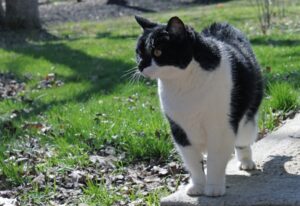Alfalfa itself is related to the same family of plants as the pea. Humans have used alfalfa as a
remedy for arthritis, rheumatism, and other inflammatory complaints. It’s also commonly used
in teas and broths as a digestive aid. People also take alfalfa in different forms because it is
believed to reduce blood sugar and cholesterol levels.
Alfalfa Nutrient Concentrate is a high-quality, all-natural protein source and phytonutrient
supplement that is believed to help dogs and cats (along with other animals) with their digestive,
glandular, urinary, and skeletal systems.
In fact, the legend of the discovery of alfalfa has to do with a pet. An Arabian horse owner fed his
horses alfalfa without knowing exactly what it was. He found that once they were eating natural
alfalfa, their performance and energy levels increased. Now, alfalfa is a common supplement for
horses and cows, as well as some smaller animals like goats, chinchillas, guinea pigs, and rabbits.
You can also find it in supplements to cat, dog, and aquarium fish food.
If you’re wondering why you would feed a carnivore such as dogs and cats a supplement that
comes from herbs and grasses (like alfalfa), there is a very good reason. While dogs and cats are
unable to digest seeds and plants very efficiently, they have evolved to get their
‘greens’ in a whole different way. Alfalfa is commonly eaten by rabbits, mice,
squirrels, etc. These small animals’ digestive tracts process and break down the fibers in the
plants they eat.
In the wild, dogs and cats eat these small animals, which is how they receive the densely packed
nutrients found in alfalfa. Since your pet dogs and cats don’t generally eat small animals, it
can be a good idea to use an alfalfa supplement made with them in mind. A supplement that is safe
for their digestion and provided by a reliable company like SeaPet.




